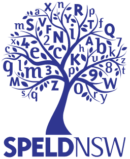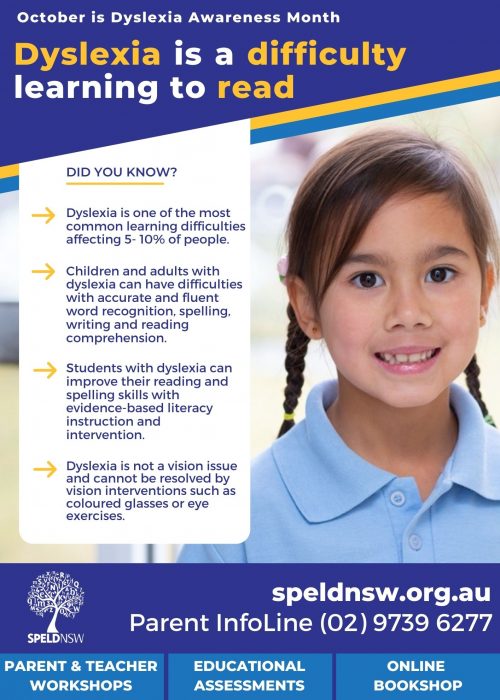Dyslexia Awareness Month
Dyslexia Awareness Month October
Each year, October is recognised worldwide as Dyslexia Awareness Month, a time to come together to raise awareness, share resources, and tell stories about dyslexia successes.
Get involved this October and make a difference by creating your own fundraising event to support SPELD NSW! Whether it’s a school mufti-day, morning tea, sponsored walk, or community event, your efforts will help raise awareness and vital funds to support students with dyslexia and learning difficulties. No idea is too small—every contribution counts!
Register your team to watch our FREE Understanding Dyslexia webinar and share our digital resources! This is your chance to spread awareness and make an impact in your community.
Understanding Dyslexia - Free Webinar
Host a Dyslexia Awareness Month Fundraiser
Between 1 and 3 students in every classroom may experience learning difficulties.
Fundraise for families with your school, friends, club or workplace this October. It's easy to register, join an existing campaign, or create your own!
Digital Resources
Share the SPELD NSW Facts with your networks. Download these social media graphics, copy and share the facts to raise awareness during October for Dyslexia Awareness month.
Tag us at @SPELDNSW #DyslexiaAwarenessMonth #UntilEveryOneCanRead
If you have dyslexia there’s a 40% chance that an immediate family member will also have dyslexia.

Dyslexia is not a vision issue and cannot be resolved by vision interventions such as coloured glasses or eye exercises.

Students with dyslexia can also struggle with numeracy skills and may also have language disorders or ADHD.

Children and adults with dyslexia can have difficulties with accurate and fluent word recognition, spelling, writing and reading comprehension

Students with dyslexia can improve their reading and spelling skills with evidence-based literacy instruction and intervention.

Did you know? Dyslexia is a learning difficulty affecting five to ten percent of the population. There are students with dyslexia in EVERY classroom.

Download our Zoom background and start a conversation about Dyslexia Awareness at your next meeting!

Thank you for joining us to raise awareness this Dyslexia Awareness Month
Tag us at @SPELDNSW #DyslexiaAwarenessMonth #UntilEveryOneCanRead






